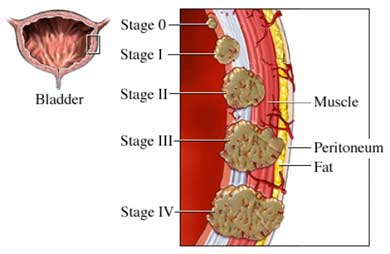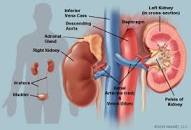
Diagnosed with Cancer? Your two greatest challenges are understanding cancer and understanding possible side effects from chemo and radiation. Knowledge is Power!
Learn about conventional, complementary, and integrative therapies.
Dealing with treatment side effects? Learn about evidence-based therapies to alleviate your symptoms.
Click the orange button to the right to learn more.
- You are here:
- Home »
- Blog »
- side effects ID and prevention »
- Cisplatin Side Effects- Reduced Magnesium, Kidney Disease, High Blood Pressure-
Cisplatin Side Effects- Reduced Magnesium, Kidney Disease, High Blood Pressure-

“Magnesium L-threonate is often used for its potential brain benefits and may help manage certain brain disorders, such as depression and age-related memory loss.”
Dear Cancer Coach- I’m grateful to have stumbled across your posting. I had cisplatin treatment for bladder cancer back in 2004, and since been cancer-free. I do have well-managed stage 2 kidney disease thanks to magnesium (MAG).
Now that I’m 70, I work harder to maintain my good health. Overall, I’ve been in decent health. Over the last couple years my blood pressure (BP) has slowly risen, and I insisted it be managed BEFORE it got too high.
It has taken me and my docs 8 months to find a drug that has brought it (BP) down without unacceptable side effects.
Now to the MAG. It wasn’t until 2 years ago that my primary doc even included MAG in my blood tests; the subject of testing my blood levels of magnesium had never previously been brought up.
My MAG blood levels read 1.6 and 1.7 which is the low-end of the acceptable range. I’ve tried MAG supplements from Oxide to Citrate (400 mg/day); both of which I learned are not well absorbed by the body and unfortunately too good as a laxative.
My Mag level didn’t budge. So my research led me to chelated MAG for better absorption and less laxative effect. I tried the MAF Glycate again 400 mg/day. AGAIN no increase of my MAG level (and can’t go higher because of loose bowel risks).
I spoke to my nephrologist about it, and asked if perhaps my having been given cisplatin might be the cause. He checked it out, and said YES. Cisplatin can cause low blood levels of MAG.
So, now I’m online looking at it further, and found your posting. It seems too late for benefit from supplements. So I thought perhaps adjust my diet for more mag-rich foods.
Well, I see that foods rich in mag, are also rich in potassium, which is bad for my kidneys. Anyway, I thought my feedback may be of interest/benefit to you and your counseling. And thought perhaps you may have some add’l info that may be of benefit to me. Thanks for what you do … Peggy
Hi Peggy,
Thanks very much for reaching out. Yes, your experiences are very helpful. It appears that your experiences about cisplatin, magnesium, kidney disease and high blood pressure are all accurate.
- Cisplatin can cause magnesium deficiency
- MAG deficiency can cause hypertension, high blood pressure
- Cisplatin can cause kidney damage
- Increase MAG levels may reduce high blood pressure
I have linked and excerpted an article about MAG. You can read over the types and decide which MAG formula appeals to you.
I use and recommend Life Extension Neuro-Mag. I use this product because magnesium threonate, according to research, helps my brain function. It helps my chemobrain as well as my heart damage. Both chemotherapy-induced…
I hope this helps. Thanks.
David Emerson
- Cancer Survivor
- Cancer Coach
- Director PeopleBeatingCancer
Recommended Reading:
- Magnesium, Cisplatin and Kidney Damage
- Multiple Myeloma Therapy, Magnesium, Bone Mineral Density
- Healing Chemotherapy-Induced Heart Disease-
Cisplatin-induced Kidney Dysfunction and Perspectives on Improving Treatment Strategies
“Cisplatin… has dose-dependent side effects on the kidney, cochlear, and nerves. Nephrotoxicity is the most well-known and clinically important toxicity. Numerous studies have demonstrated that several mechanisms, including oxidative stress, DNA damage, and inflammatory responses, are closely associated with cisplatin-induced nephrotoxicity…”
Magnesium depletion in patients receiving cisplatin-based chemotherapy.
“CONCLUSIONS: It is recommended that MAG levels should be measured routinely in all patients receiving cisplatin and that all cisplatin-based chemotherapy regimens should be supplemented routinely with sufficient doses of MAG (40-80 mmol magnesium per cycle depending on the regimen)…”
Magnesium and hypertension
“Mag status has a direct effect upon the relaxation capability of vascular smooth muscle cells and the regulation of the cellular placement of other cations important to blood pressure – cellular sodium:potassium (Na:K) ratio and intracellular calcium (iCa(2+))…
As a result, nutritional magnesium has both direct and indirect impacts on the regulation of blood pressure and therefore on the occurrence of hypertension…
Mag supplementation above 15 mmol per day are required to normalize high blood pressure in unmedicated hypertensive patients while 15 mmol per day will lower high blood pressure in patients treated with anti-hypertensive medications…
The knowledge that low mag causes imbalance in both cellular and physiological calcium widens our view of the studies showing hypertensives have abnormal calcium metabolism.”
10 Interesting Types of Mag (and What to Use Each For)
“…Interestingly, low levels are linked to a variety of illnesses, such as type 2 diabetes, heart disease, mood disorders, and migraines (2Trusted Source).
Although this mineral is present in many whole foods like green leafy vegetables, legumes, nuts, and seeds, up to two-thirds of people in the Western world don’t meet their mag needs with diet alone (1Trusted Source).
To boost intake, many people turn to supplements. However, as multiple varieties of supplemental mag exist, it can be difficult to know which one is most appropriate for your needs…
Mag citrate is a form of mag that’s bound with citric acid.
This acid is found naturally in citrus fruits and gives them their tart, sour flavor. Artificially produced citric acid is often used as a preservative and flavor enhancer in the food industry (3).
Mag citrate is one of the most common mag formulations and can be easily purchased online or in stores worldwide.
Some research suggests that this type is among the most bioavailable forms of mag, meaning that it’s more easily absorbed in your digestive tract than other forms (4Trusted Source).
This type isn’t typically used to prevent or treat mag deficiencies, as some studies report that it’s poorly absorbed by your digestive tract (7Trusted Source).
It’s well absorbed in your digestive tract, making it a great multi-purpose supplement. You can use it to treat low magnesium levels, heartburn, and constipation (7Trusted Source, 9).
This acid is not only produced by your muscle and blood cells but also manufactured for use as a preservative and flavoring agent (11).
Mag lactate is easily absorbed and may be a little gentler on your digestive system than other types. This is particularly significant for people who need to take large doses of mag regularly or don’t easily tolerate other forms.
Research suggests that mag malate is very well absorbed in your digestive tract, making it a great option for replenishing your magnesium levels (14Trusted Source).
Some people report that it’s gentler on your system and may have less of a laxative effect than other types. This may be beneficial, depending on your specific needs.
Research suggests that adequate intakes of taurine and mag play a role in regulating blood sugar. Thus, this particular form may promote healthy blood sugar levels (16Trusted Source, 17Trusted Source).
Mag and taurine also support healthy blood pressure (18Trusted Source, 19Trusted Source).
This form is easily absorbed. Animal research notes that it may be the most effective type for increasing mag concentrations in brain cells (22Trusted Source).
Magnesium L-threonate is often used for its potential brain benefits and may help manage certain brain disorders, such as depression and age-related memory loss. Nonetheless, more research is needed.
Mag sulfate is formed by combining magnesium, sulfur, and oxygen. It’s commonly referred to as Epsom salt.
Although adequate magnesium levels can play a role in muscle relaxation and stress relief, there’s very little evidence to suggest that this form is well absorbed through your skin (10Trusted Source).
Mag glycinate is easily absorbed and may have calming properties. It may help reduce anxiety, depression, stress, and insomnia. Yet, scientific evidence on these uses is limited, so more studies are needed (8Trusted Source).
It’s easily absorbed and doesn’t have the strong laxative effects characteristic of other forms (25Trusted Source).
Early research suggests that it may promote heart health due to orotic acid’s unique role in the energy production pathways in your heart and blood vessel tissue (25Trusted Source).
One study in 79 people with severe congestive heart failure found that mag orotate supplements were significantly more effective for symptom management and survival than a placebo (26Trusted Source).
Yet, this form is significantly more expensive than other mag supplements. Based on the limited evidence available, its benefits don’t justify its cost for many people.


